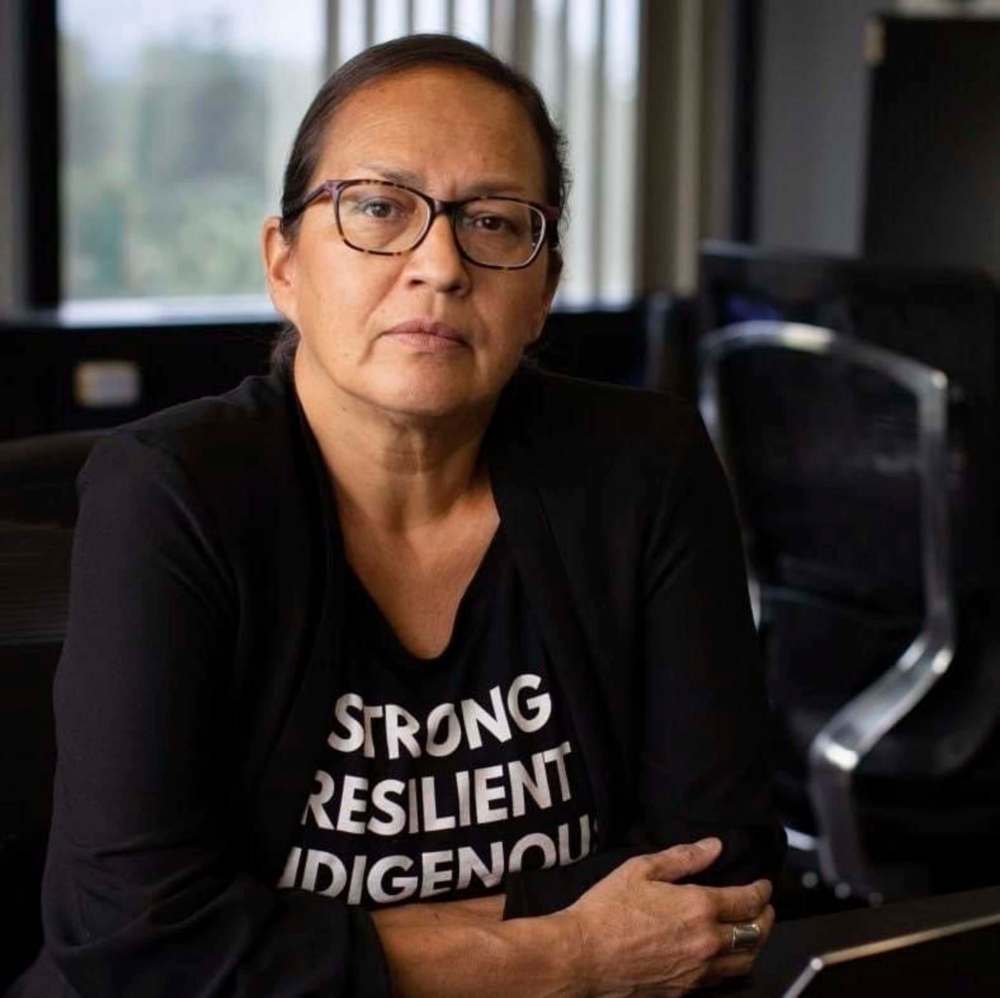‘Like a wound that never heals’
Indigenous psychiatrist says First Nations wildfire evacuees need trauma-informed approach
Advertisement
Read this article for free:
or
Already have an account? Log in here »
To continue reading, please subscribe:
Monthly Digital Subscription
$0 for the first 4 weeks*
- Enjoy unlimited reading on winnipegfreepress.com
- Read the E-Edition, our digital replica newspaper
- Access News Break, our award-winning app
- Play interactive puzzles
*No charge for 4 weeks then price increases to the regular rate of $19.00 plus GST every four weeks. Offer available to new and qualified returning subscribers only. Cancel any time.
Monthly Digital Subscription
$4.75/week*
- Enjoy unlimited reading on winnipegfreepress.com
- Read the E-Edition, our digital replica newspaper
- Access News Break, our award-winning app
- Play interactive puzzles
*Billed as $19 plus GST every four weeks. Cancel any time.
To continue reading, please subscribe:
Add Free Press access to your Brandon Sun subscription for only an additional
$1 for the first 4 weeks*
*Your next subscription payment will increase by $1.00 and you will be charged $16.99 plus GST for four weeks. After four weeks, your payment will increase to $23.99 plus GST every four weeks.
Read unlimited articles for free today:
or
Already have an account? Log in here »
Hey there, time traveller!
This article was published 26/07/2021 (1600 days ago), so information in it may no longer be current.
With more than a thousand First Nations evacuees waiting out wildfires in hotels in Manitoba and many more forced out of their homes in other parts of the country, coping with the uncertainty means recognizing Indigenous expertise — both in trauma counselling and in firefighting, an Indigenous psychiatrist says.
Dr. Nel Wieman, acting deputy chief medical officer for the First Nations Health Authority in B.C., said First Nations evacuees need more than just their basic needs met — a trauma-informed approach is key. And that means trying to understand where each evacuee is coming from, especially when they’ve had past traumatic experiences or have been forced out of their community more than once.
Rather than becoming numb to the evacuation process, some people who’ve had their homes repeatedly threatened by wildfire will feel compounded emotional distress, “like a wound that never heals,” Wieman said.

“Uncertainty and loss of control are probably the two biggest factors that play into emotional distress,” she said. “The way that people who are working with evacuees can mitigate that situation is by maintaining constant, clear, factual communication.”
“Someone’s evacuated and they’re worried about, ‘Is my home still there? Is my community still there?’ And then they get processed in an evacuation centre and put in a hotel room and then nobody talks to them for a day or two. That would be incredibly stressful, that wouldn’t be helpful, so maintaining that communication, I think, is really key,” she added.
Wieman, a ’60s Scoop survivor and member of Little Grand Rapids First Nation, has been hearing from chiefs in B.C., where thousands have been evacuated and the province has declared a state of emergency. Some have told her their members heard racist comments at evacuation centres, and she said many Canadians still misunderstand or underestimate the importance of ancestral land in Indigenous spirituality, particularly when a First Nations community is repeatedly put under evacuation orders for fires or floods.
“You hear that sort of discourse around, well why don’t people just move?” she said.
“They have ancestral ties to certain areas, and that’s the land that they have been caring for, for generations upon generations.”
Governments could do more to draw on Indigenous knowledge when considering how to control or prevent wildfire, and to make sure First Nations evacuees are still getting access to elders, knowledge-keepers and traditional ceremonies along with the standard mental-health counselling, Wieman said.
“The responsibility, I think, really lies with organizations that provide assistance to engage in increasing the cultural safety of their services. And that’s starting to happen.”
Four First Nations have been evacuated in Manitoba: Little Grand Rapids, Pauingassi, Berens River and Bloodvein, and members of the military have arrived for emergency help. More than 1,000 evacuees are staying in hotels in Winnipeg and Brandon until further notice.
There were 139 active fires burning in Manitoba Sunday, according to the latest update from the Manitoba Wildfire Service.
Lightning strikes sparked 11 new fires since Saturday, most in northern Manitoba, as crews continue to battle extremely dry conditions, said Don Hallett, assistant director of the provincial wildfire service.
“If there’s any glimmer of hope from the new fires that started yesterday and into today, they all have been in areas where we are already currently fighting fire, so we had resources readily available and near.”
No homes or buildings have been reported damaged due to the fires.
In addition to firefighters from Nova Scotia, air tanker equipment is being brought in from the Northwest Territories and an additional waterbomber is set to come from Quebec. Burn bans and travel restrictions are still in effect in several areas of the province. (More information and maps here: https://www.gov.mb.ca/conservation_fire/Restrictions/index.html)
katie.may@freepress.mb.ca
Twitter: @thatkatiemay

Katie May is a general-assignment reporter for the Free Press.
Our newsroom depends on a growing audience of readers to power our journalism. If you are not a paid reader, please consider becoming a subscriber.
Our newsroom depends on its audience of readers to power our journalism. Thank you for your support.
History
Updated on Monday, July 26, 2021 10:06 AM CDT: Adds web headline



